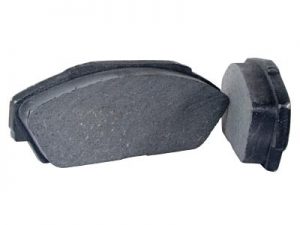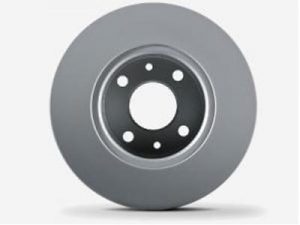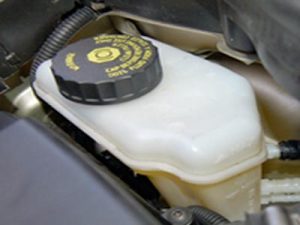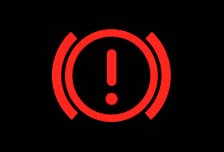Car Brake Pads

Car brake pads are usually made from iron, copper, steel and graphite all mixed and together and bonded to form the pad material. When you put your foot on the brake the brake pad is pressed against to the break disc to slow you down and help you stop. These component parts are designed to wear down over time and therefore need to be regularly checked to ensure there is enough pad left to help you stop safely. Brake pad checks are normally carried out as part of a normal car service. However, if you suspect there is something wrong with your brakes then you should get them checked immediately.
Car Brake Disc

The brake disc is usually made of cast iron and is connected to the axle of the car. The disc itself is normally hard wearing however it can become warped/distorted if the brake pads have been allowed to wear down too much. In this instance both the pads and the disc will need to be replaced and you would normally replace them in pairs. (Both fronts / both rears)
If the brake disc has warped then new brake pads won’t effectively work properly when pushed against the surface as it is no longer flat.
Car Brake Fluid

Car brake fluid provides the necessary pressure in the hydraulic breaking system. It has to be maintained and topped up regularly to ensure the brakes on your car continue to work correctly.
There is a small brake fluid reservoir in the engine compartment under the bonnet. Markers on the side of the reservoir indicate the current level of the fluid in the system.
The brake fluid is checked when you have a normal car service and topped up if required. As the system works under a pressurised system then it is important that the brakes are ‘bled’ when replacing brake fluid to ensure no air exists within the braking system.
Common Signs Your Brakes Are Wearing Out!
If you recognise any of these common brake faults then
you need to get the car checked for the safety of yourself, your passengers and other road users!
Warning Light on Dashbaord
Vibrations When Breaking!
If you feel a vibration when pressing the foot pedal then that is a sign that your brake pads may be wearing out. Get them checked before they wear too thin and cause excess damage.
Screeching Noise When Breaking!
If you hear a loud high pitched screeching when breaking then your brake pads have already worn down to a dangerous level. The sound you here is cause by the brake pad housing pressing again the break disc. If you don’t resolve this issue quickly then you will have to replace both the pads and the discs which can be expensive.
Car Pulls to One Side When Breaking!
If you feel the car pulling to one side when you are breaking then this can be a sign that the pads are wearing thin. Get the car checked out to determine the cause of the issue. It may be brakes or it may be to with steering alignment.
Car Takes Longer to Slow Down!
If you find that it is taking longer to slow down when driving then this can be a sign that your brake pads are no longer functioning as they should. You need to get them checked out before they fail completely which can lead to a crash.
Handbrake No Longer Holds Car On a Hill!
If your handbrake no long holds the car on a hill when parked or waiting at an elevated junction then your brake pads may need replacing. It could also be that your brake cable needs adjusting as it may have become stretched over time. In either case it makes sense to get the braking system checked out.


